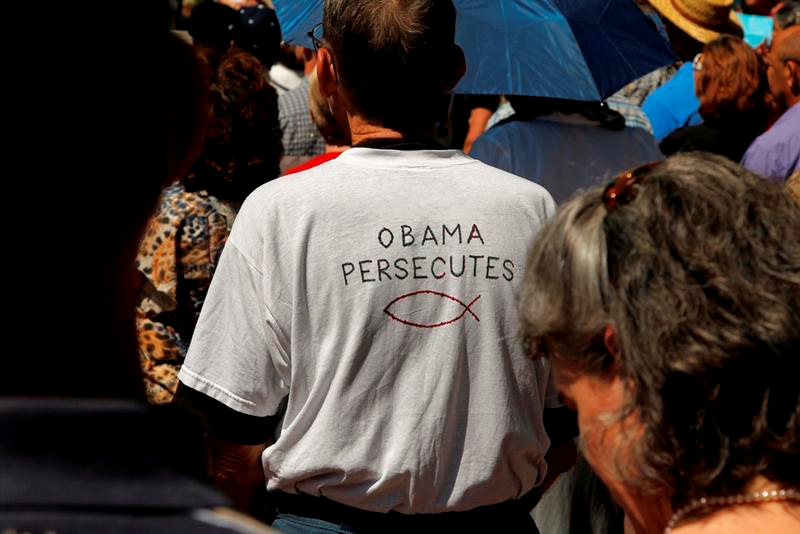 In the wake of various rallies which have taken place over the weekend regarding religion and the free exercise thereof, a question springs to my mind: “Who Would Jesus Protest?” Before you throw that question out as irrelevant, remember that Jesus lived and ministered in a highly-charged political environment. Jesus interacted with several political entities especially at the end of his life. Consider the following reading from the Gospel of John:
In the wake of various rallies which have taken place over the weekend regarding religion and the free exercise thereof, a question springs to my mind: “Who Would Jesus Protest?” Before you throw that question out as irrelevant, remember that Jesus lived and ministered in a highly-charged political environment. Jesus interacted with several political entities especially at the end of his life. Consider the following reading from the Gospel of John:
Then the Jewish leaders took Jesus from Caiaphas to the palace of the Roman governor. By now it was early morning, and to avoid ceremonial uncleanness they did not enter the palace, because they wanted to be able to eat the Passover. So Pilate came out to them and asked, “What charges are you bringing against this man?”
“If he were not a criminal,” they replied, “we would not have handed him over to you.”
Pilate said, “Take him yourselves and judge him by your own law.”
“But we have no right to execute anyone,” they objected. This took place to fulfill what Jesus had said about the kind of death he was going to die.
Pilate then went back inside the palace, summoned Jesus and asked him, “Are you the king of the Jews?”
“Is that your own idea,” Jesus asked, “or did others talk to you about me?”
“Am I a Jew?” Pilate replied. “Your own people and chief priests handed you over to me. What is it you have done?”
Jesus said, “My kingdom is not of this world. If it were, my servants would fight to prevent my arrest by the Jewish leaders. But now my kingdom is from another place.”
“You are a king, then!” said Pilate.
Jesus answered, “You say that I am a king. In fact, the reason I was born and came into the world is to testify to the truth. Everyone on the side of truth listens to me.” (John 28:28-37 NIV)
This discussion involves three parties. Two of them believe in Yahweh – the “Jewish leaders” and Jesus. Two of them struggle over political influence – the “Jewish leaders” and Pilate. Just one both worshipped Yahweh and bowed out of the political wrangling, even though the outcome had bearing on his very survival. His reason: “My kingdom is not of this world. If it were, my servants would fight to prevent my arrest by the Jewish leaders. But now my kingdom is from another place.”
What if those who today claim to serve Jesus Christ stood up and said, “You can keep it! We don’t need your support and we don’t fear your opposition. We will neither compromise our values nor fight over them. You are free to take away our rights, our dignity, our livelihood, and our very lives. You can keep it all because our kingdom is not of this world. In the end we will be vindicated and victorious. Just wait and see.”


